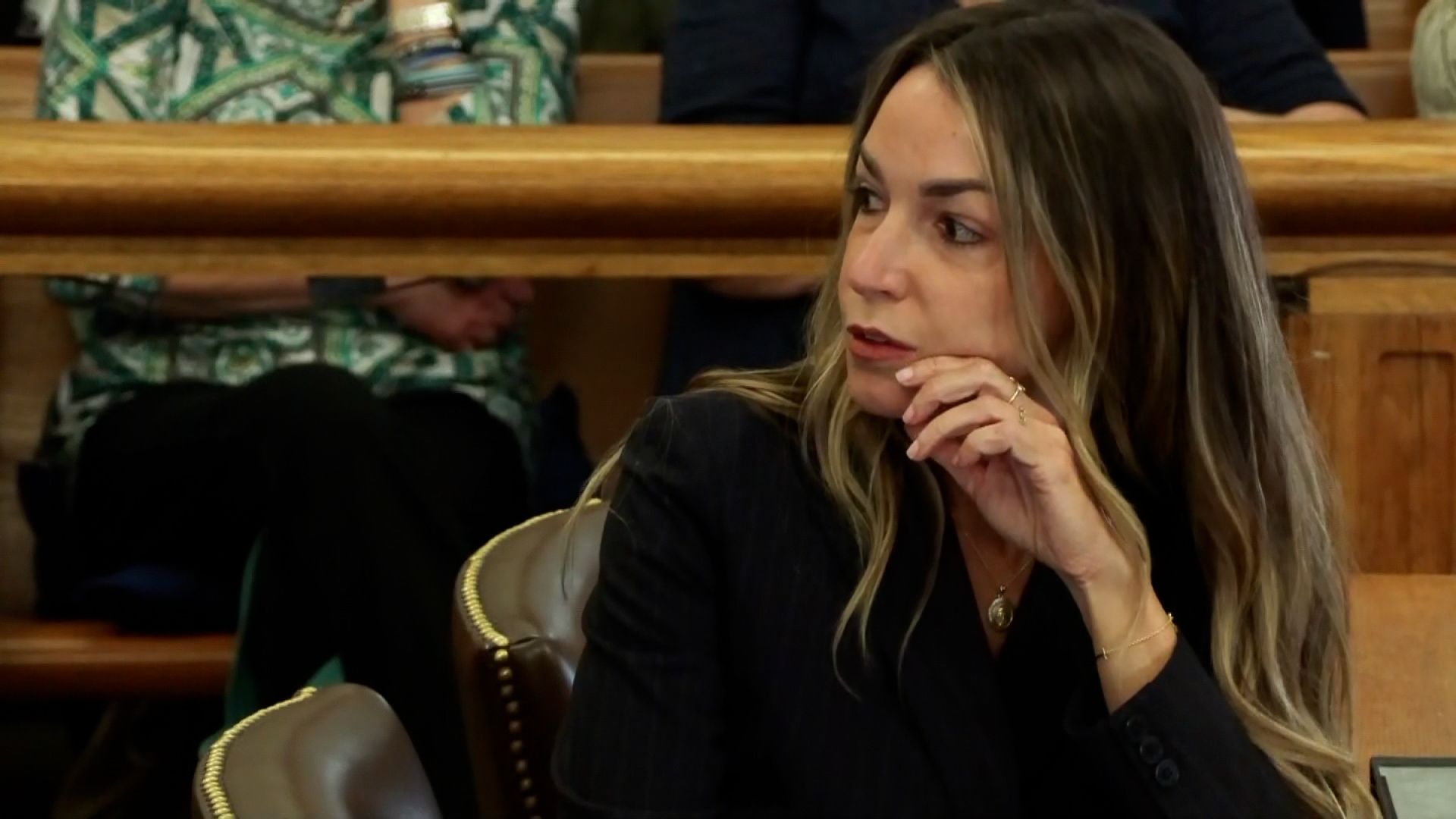The Massachusetts judge presiding over the Karen Read murder trial ordered the jury to continue deliberations after the jurors sent a note Friday saying they could not reach a unanimous verdict.
The six-man and six-woman jury in the trial of Read, who is accused of drunkenly driving into her police officer boyfriend and leaving him to die in January 2022, informed the court shortly after midday, saying, “Despite our exhaustive review of the evidence and our diligent consideration of all disputed evidence, we have been unable to reach unanimous verdict.”
After hearing arguments from the prosecution and defense, Norfolk County Superior Court Judge Beverly Cannone asked the jury to continue to deliberate.
“Lunch will be arriving shortly; when it comes, I’d ask you to clear your heads, have lunch and begin your deliberations again,” Cannone told the jurors.
After the judge’s order, the jury continued deliberating until shortly after 4 p.m. local time. Deliberations will resume Monday morning at 9 a.m., the judge announced.
The jury has been deliberating Read’s fate since midday Tuesday. The case has featured accusations of a vast police cover-up as well as allegations of improper conduct and sexist text messages from a lead investigator.
The prosecution and defense both weighed in on the jury’s note, asking the judge to consider different outcomes in her decision on what to tell the jury.
“It is far, far, far too early in their deliberative process to even consider giving them any kind of Tuey-Rodriguez instruction or anything close to that,” Norfolk County Assistant District Attorney Adam Lally said, referring to a special set of Massachusetts instructions that are read to a jury when jurors are unable to agree on a verdict. “The note doesn’t really indicate affirmatively that they can’t come to a conclusion, it just says they haven’t come to a conclusion through their deliberative process at this time.”
Alternately, defense attorney David Yannetti argued the jury should be read the Tuey-Rodriguez criminal model instructions, indicating that they would like the court to proceed toward having a hung jury.
“The word exhaustive is the word I think that’s operative here,” he told the judge. “They are communicating to the court that they’ve exhausted all manner of compromise, all manner of persuasion, and they’re at an impasse.”
The judge said she weighed both counsel’s views in deciding to send the jury back to deliberate a verdict in the controversial case. The Tuey-Rodriguez instructions were not read to the jury. Case law cautions against reading the instruction prematurely.
Read, 45, pleaded not guilty to charges of second-degree murder, vehicular manslaughter while intoxicated and leaving the scene of a collision resulting in death. If found guilty of second-degree murder, Read faces a maximum sentence of life in prison, according to?Massachusetts law.
The body of her boyfriend, Boston Police Officer John O’Keefe, was found bruised and battered in the snow on January 29, 2022, outside the home of a fellow Boston police officer in Canton, Massachusetts.
Prosecutors have alleged Read and O’Keefe, who had an at-times tumultuous relationship, got into an argument that night, and that she drunkenly backed into him and fled the scene, leaving him to die in the cold.
“What the constellation of the facts and the evidence ineluctably demonstrate here is that the defendant drove her vehicle in reverse at 24.2 miles per hour for 62.5 feet, struck Mr. O’Keefe, causing those catastrophic head injuries, leaving him incapacitated and freezing him to death,” prosecutor Adam Lally said in closing arguments Tuesday.
In contrast, Read’s defense has accused off-duty police inside that Canton home of fatally beating O’Keefe, dumping his body on the lawn and then conspiring through fabricated evidence and false testimony to frame Read.
“Ladies and gentlemen, there was a cover-up in this case, plain and simple,” defense attorney Alan Jackson said. “You’ll surely say to yourself, ‘I don’t want to believe it, I don’t want to believe that could happen in our community,’ but sadly over these past eight weeks you’ve seen it right before your eyes.”
The closing arguments represented the end of a murder trial that has garnered interest both local and widespread, including accusations of witness tampering, a federal probe into the investigation, and groups of pink-wearing supporters chanting to “Free Karen Read.”
The prosecution’s case also has been hampered by a series of missteps and unusual investigative practices. Most notably, a lead investigator in the case, Massachusetts State Police Trooper Michael Proctor, admitted that he sent a series of sexist and offensive texts about Read in a private group chat, calling her a “whack job,” mocking her medical issues and commenting to coworkers that he had found “no nudes” while searching her phone for evidence, CNN affiliate WCVB reported.
Proctor apologized for the “unprofessional” comments on the stand, but the vulgar texts have been sharply criticized in and out of court, including from the governor.
“It’s completely unprofessional,” Gov. Maura Healey told WCVB of the texts. “It does harm, frankly, to the dignity and the integrity of the work of men and women across the state police and law enforcement. So as a former attorney general and as governor, I am disgusted by that.”
Correction: A previous version of this story misspelled the name of Read's defense attorney, David Yannetti.
This story has been updated with additional information.



